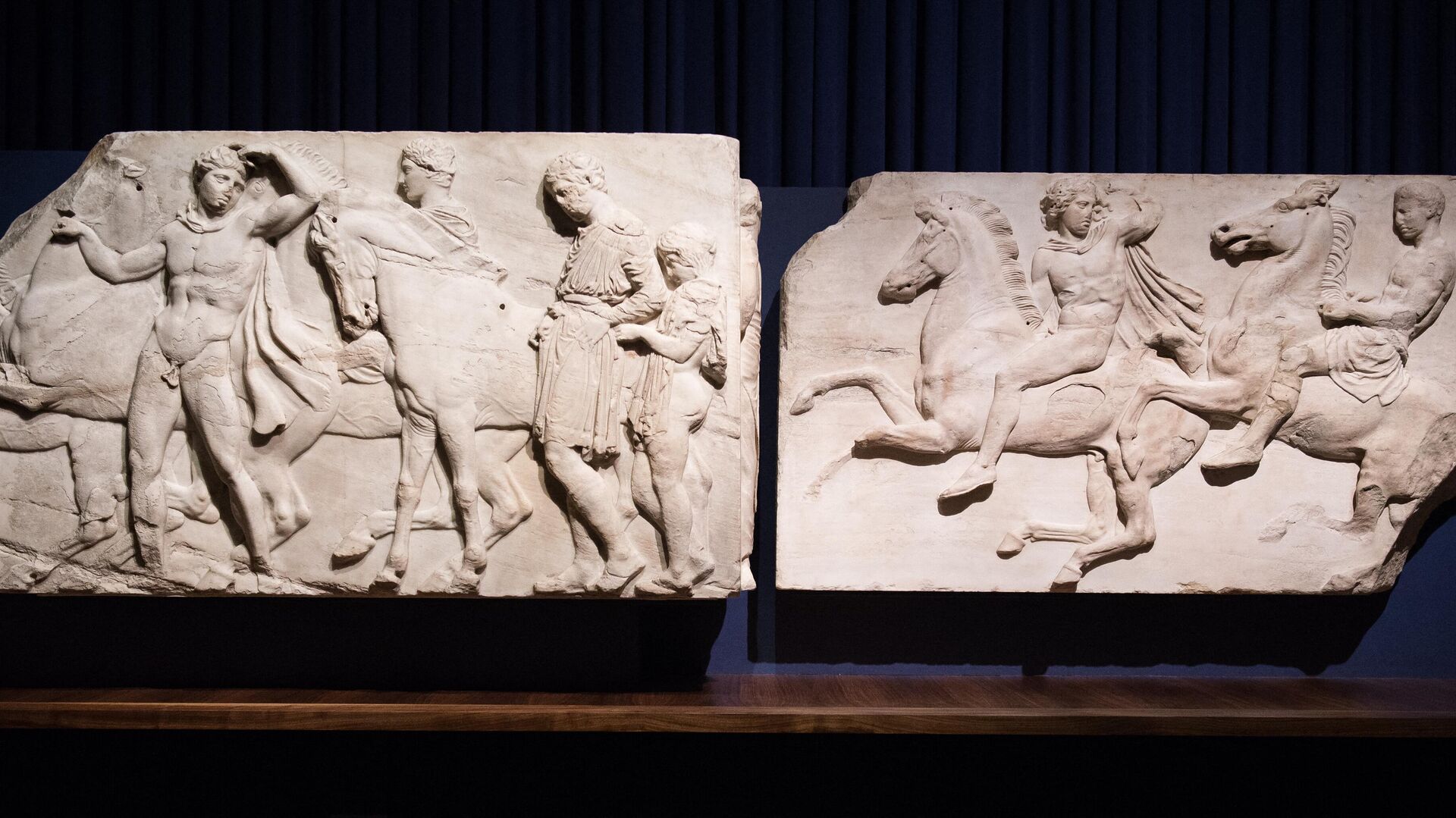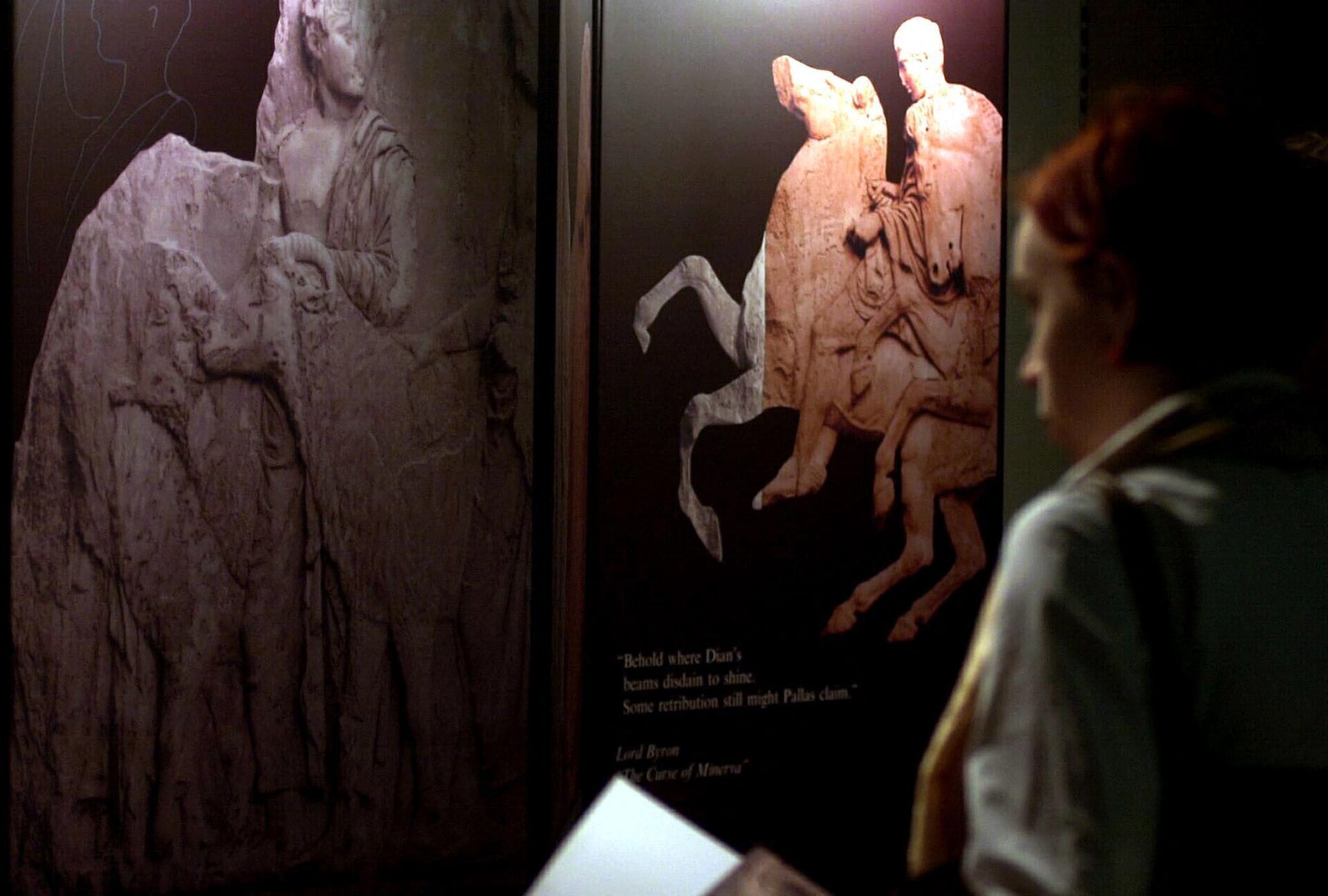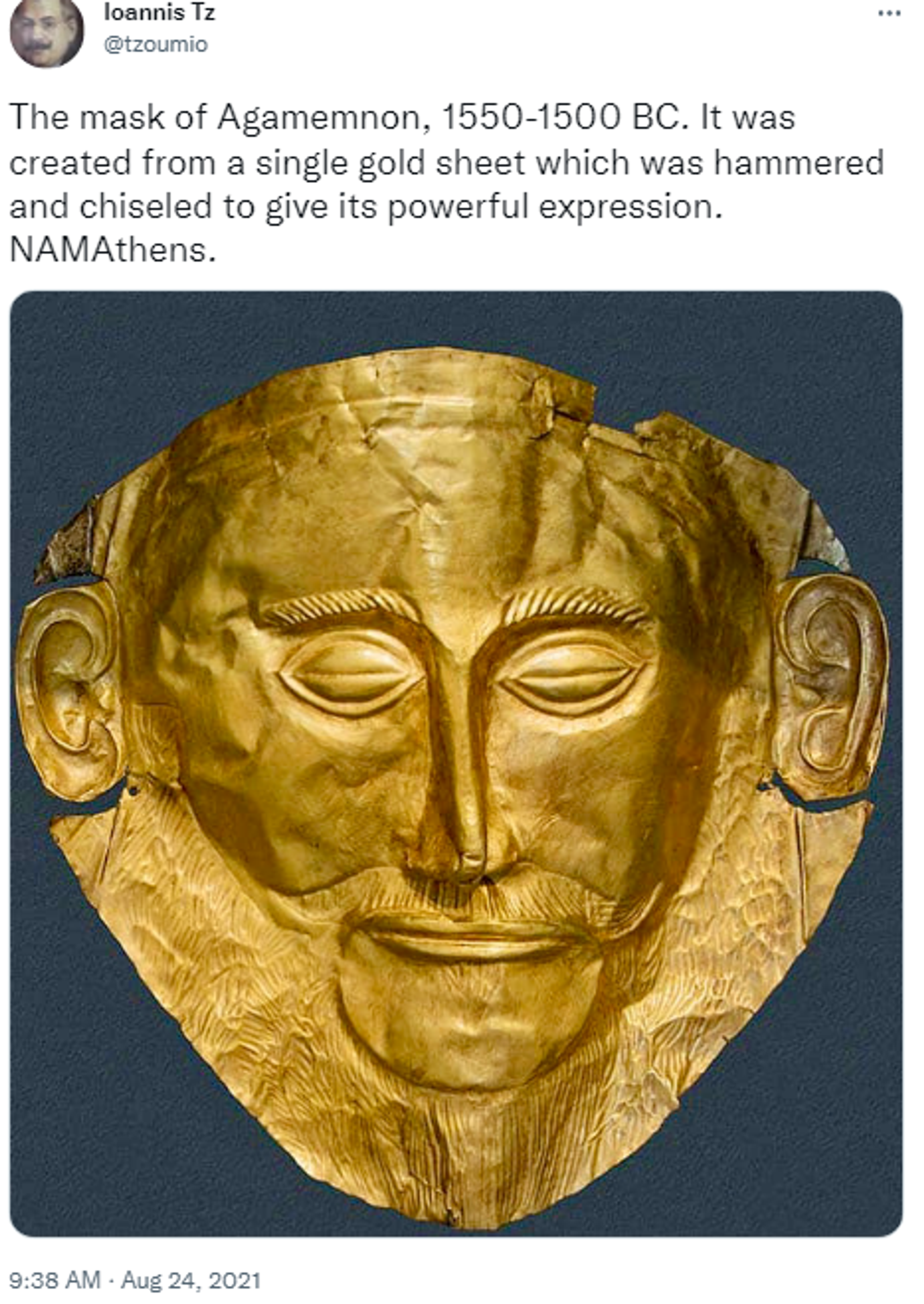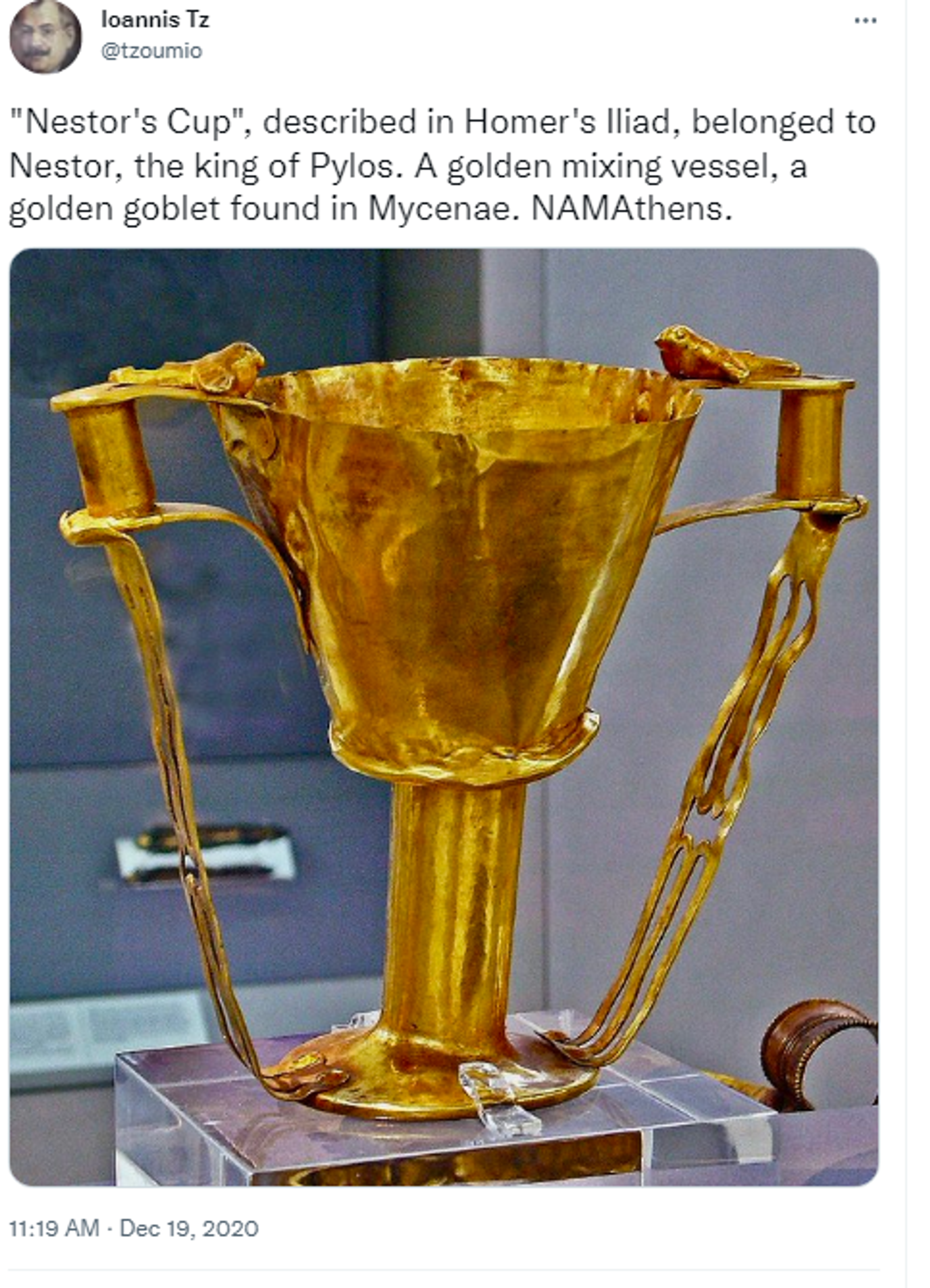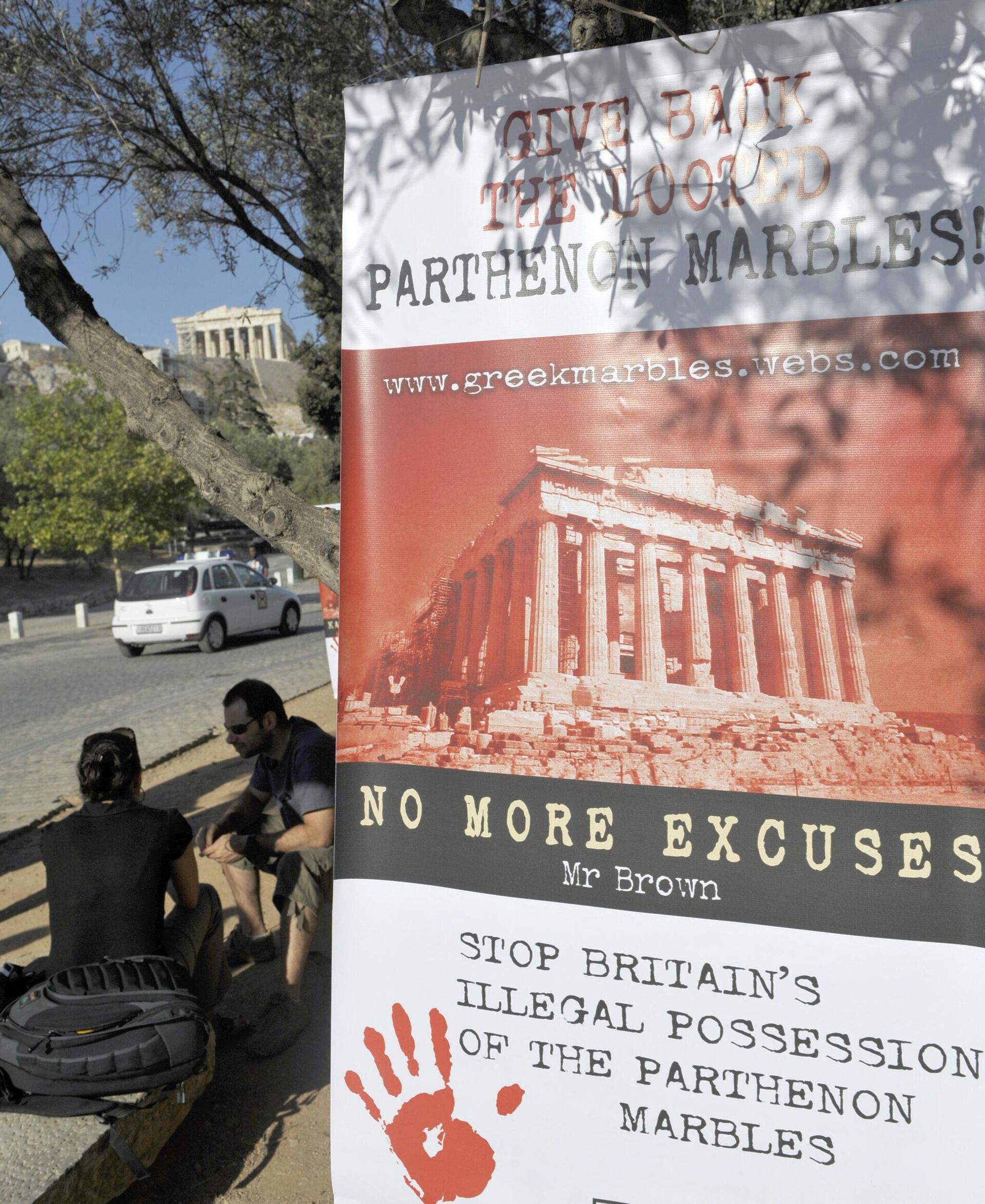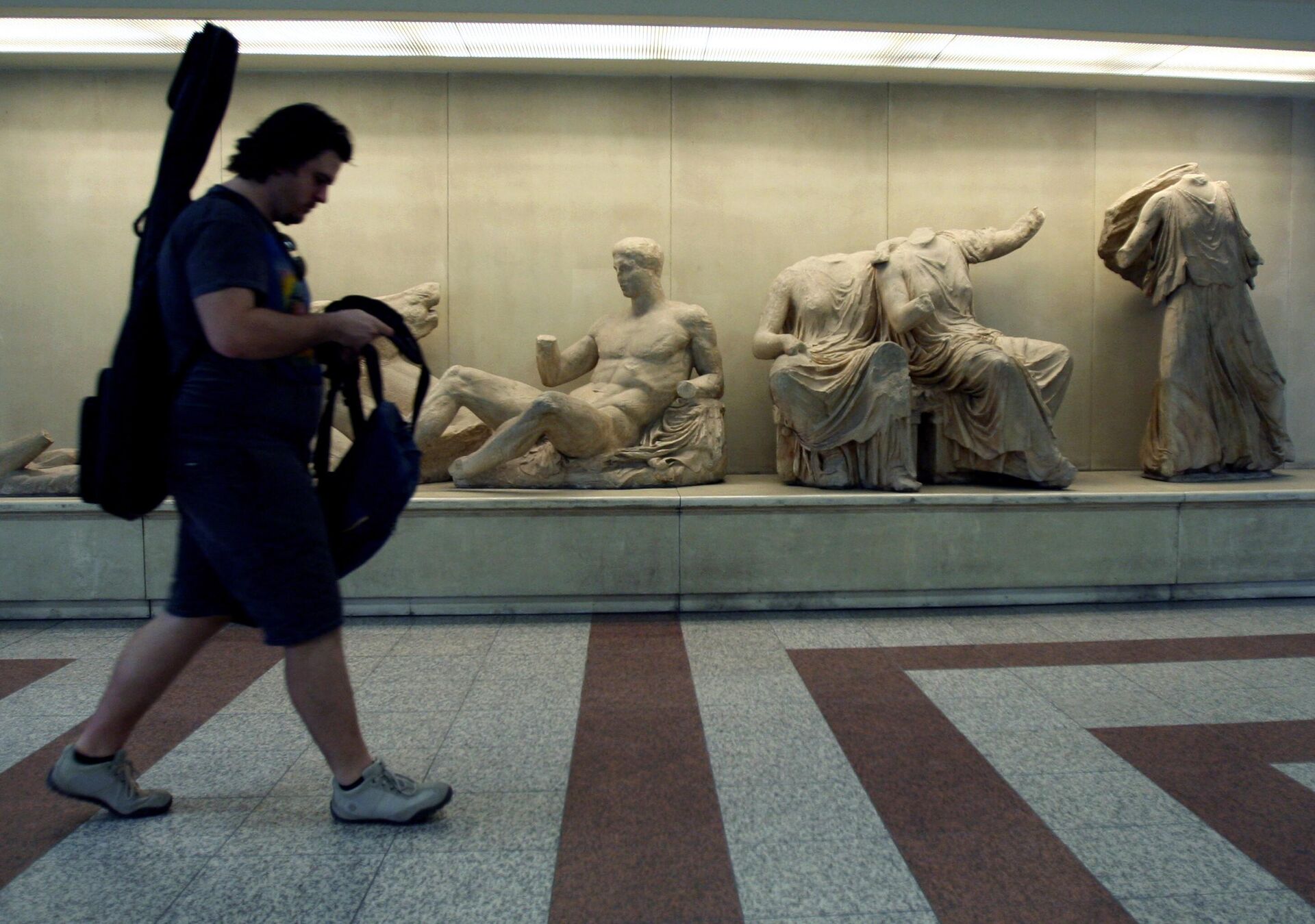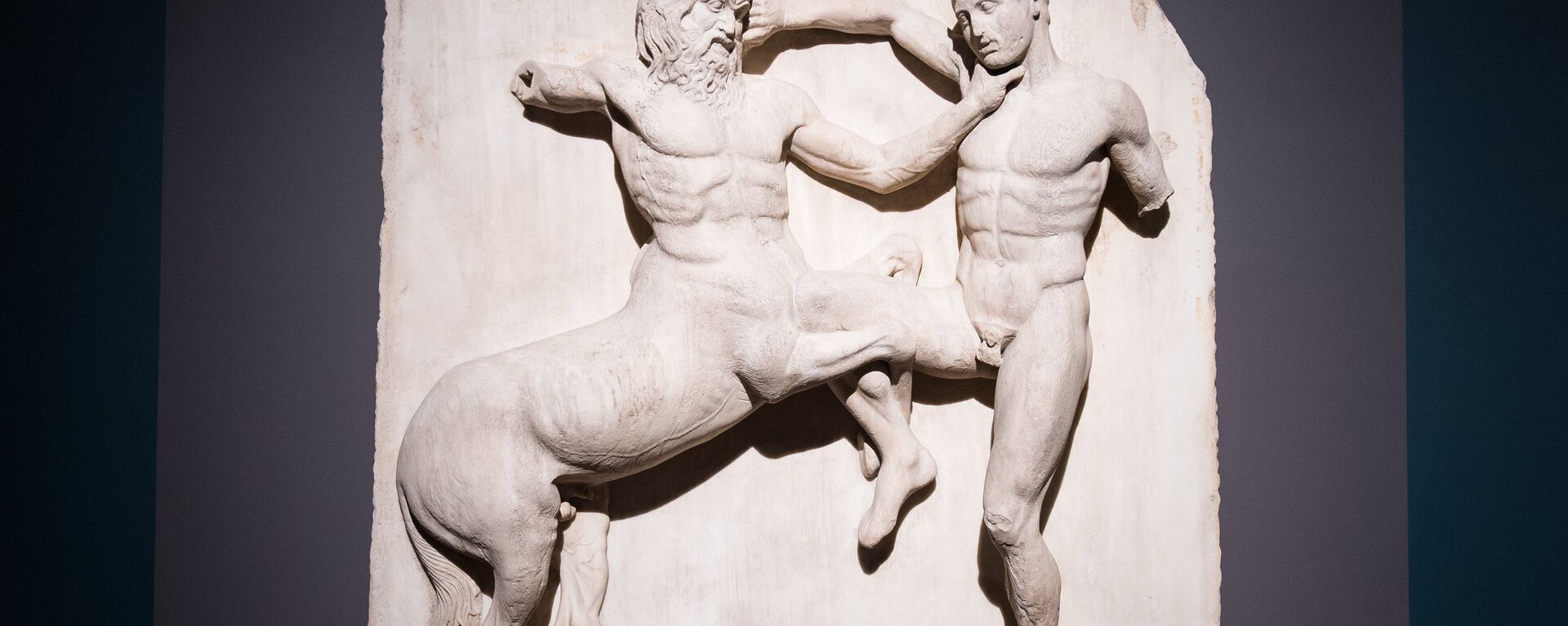https://sputnikglobe.com/20230105/removal-of-greek-parthenon-marbles-likened-to-stripping-salisbury-of-stonehenge-by-uks-stephen-fry-1106060559.html
Removal of Greek Parthenon Marbles Likened to Stripping Salisbury of Stonehenge by UK's Stephen Fry
Removal of Greek Parthenon Marbles Likened to Stripping Salisbury of Stonehenge by UK's Stephen Fry
Sputnik International
Greek fifth-century BC Parthenon Marbles carvings should be returned to their country of origin, British actor and writer Stephen Fry has said.
2023-01-05T13:25+0000
2023-01-05T13:25+0000
2023-05-28T15:25+0000
world
greece
athens
parthenon
elgin marbles
united kingdom (uk)
https://cdn1.img.sputnikglobe.com/img/07e7/01/05/1106057691_259:0:3900:2048_1920x0_80_0_0_b83b92c39ac645b3036709e04a636a5d.jpg
The fifth century BC Greek Parthenon marble carvings should be returned to their country of origin, British actor and writer Stephen Fry has said in a UK media interview.The sculptures, originally part of the temple of the Parthenon at the Acropolis in Athens, were removed by British diplomat Lord Elgin during the Turkish occupation in 1802. They were brought to Britain and are now on display in the British Museum in London. The UK has long argued that Elgin was given permission to take them by local Ottoman rulers. Greece has consistently demanded the return of the sculptures on display in the British Museum, claiming they are "the product of theft."English actor, broadcaster, and comedian Stephen Fry has long been advocating for the return of the collection of classical Greek sculptures by architect and sculptor Phidias. Wading into the protracted ownership debate with Greece, Fry suggested that an amicable solution to the contentious issue could be built around a cultural partnership. This option would allow for various remarkable Greek artifacts to be exhibited in the UK for the first time.The shrewd and prolific writer argued that the ancient carvings "bring to life the Greek history, myths and legends that captivate lovers of classical antiquity like me. Not only do I believe they rightfully belong to Greece, but would these intricately carved sculptures not be all the more stunning to behold if seen reunited as a single artistic piece of work in the Acropolis Museum?”Stephen Fry has thrown his support behind the Parthenon Project. Established by Greek industrialist John Lefas and chaired by former UK Culture Minister Ed Vaizey, the campaign group has been pushing for precisely such a solution to the debate. “Imagine a transformed Duveen Gallery in the British Museum featuring pieces from Greece like the astonishing gold funereal Mask of Agamemnon. I can’t imagine the British Museum would not see footfall increase as a result," Fry said.The writer acknowledged the various ongoing “restitution campaigns” around the world, but underscored that the debate around the Parthenon sculptures was one about “the reunification of a magnificent work of art, not restitution.”A "magnanimous" return of the Parthenon sculptures would serve to forge a "new cultural partnership between our two countries," he claimed, with benefits for the overall Anglo-Greek relationship.Stephen Fry’s comments came as the British Museum issued a statement that it was having constructive discussions with the Greek government regarding the fate of the ancient sculptures.Throughout 2022, ex-UK chancellor, now British Museum chair, George Osborne, was locked in talks on the issue with the Greek prime minister, Kyriakos Mitsotakis. While the British Museum Act (1963) prevents the institution from deaccessioning "disputed items," Prime Minister Rishi Sunak in December ruled out amending the legislation.As to popular opinion, commissioned by the Parthenon Project, recent polling by YouGov revealed that a majority of Britons (53%) believe the "Elgin Marbles" should be returned to their country of origin.
https://sputnikglobe.com/20200620/greece-again-calls-on-uk-to-return-ancient-parthenon-marbles-1079676007.html
https://sputnikglobe.com/20211122/greece-makes-fresh-push-to-get-elgin-marbles-returned-but-british-museum-is-not-budging-1090862435.html
greece
athens
united kingdom (uk)
Sputnik International
feedback@sputniknews.com
+74956456601
MIA „Rossiya Segodnya“
2023
News
en_EN
Sputnik International
feedback@sputniknews.com
+74956456601
MIA „Rossiya Segodnya“
Sputnik International
feedback@sputniknews.com
+74956456601
MIA „Rossiya Segodnya“
rightfully belong to greece, greek fifth-century bc parthenon marbles carvings, country of origin, british actor and writer stephen fry, classical greek sculptures by architect and sculptor phidias, protracted ownership debate, cultural partnership, reunited in the acropolis museum
rightfully belong to greece, greek fifth-century bc parthenon marbles carvings, country of origin, british actor and writer stephen fry, classical greek sculptures by architect and sculptor phidias, protracted ownership debate, cultural partnership, reunited in the acropolis museum
Removal of Greek Parthenon Marbles Likened to Stripping Salisbury of Stonehenge by UK's Stephen Fry
13:25 GMT 05.01.2023 (Updated: 15:25 GMT 28.05.2023) Athens has repeatedly called the British Museum’s retention of the Parthenon marble carvings, which were removed from the Acropolis over 200 years ago and have been the subject of ownership dispute since then, illegal and “contrary to any moral principle.”
The fifth century BC Greek
Parthenon marble carvings should be returned to their country of origin, British actor and writer Stephen Fry has said in a UK media interview.
“The removal of the Parthenon sculptures could be compared to removing the Eiffel Tower from Paris or Stonehenge from Salisbury. I think this comparison speaks to the cultural importance of the Parthenon sculptures, which are an indelibly evocative symbol of Greek heritage and identity,” Fry said.
The sculptures, originally part of the temple of the Parthenon at the Acropolis in Athens, were removed by British diplomat Lord Elgin during the Turkish occupation in 1802. They were brought to Britain and
are now on display in the British Museum in London. The UK has long argued that Elgin was given permission to take them by local Ottoman rulers. Greece has consistently demanded the return of the sculptures on display in the British Museum, claiming they are "the product of theft."
English actor, broadcaster, and comedian Stephen Fry has long been advocating for the return of the collection of classical Greek sculptures by architect and sculptor Phidias. Wading into the
protracted ownership debate with Greece, Fry suggested that an amicable solution to the contentious issue could be built around a cultural partnership. This option would allow for various remarkable Greek artifacts to be exhibited in the UK for the first time.
“I want the British Museum to continue in its role as a ‘museum of the world,’ showcasing magnificent Greek artifacts as part of rotating exhibits. But the Parthenon sculptures must be reunified – permanently – in Athens,” Fry stated.
The shrewd and prolific writer argued that the ancient carvings "bring to life the Greek history, myths and legends that captivate lovers of classical antiquity like me. Not only do I believe they rightfully belong to Greece, but would these intricately carved sculptures not be all the more stunning to behold if seen reunited as a single artistic piece of work in the Acropolis Museum?”
Stephen Fry has thrown his support behind the Parthenon Project. Established by Greek industrialist John Lefas and chaired by former UK Culture Minister Ed Vaizey, the campaign group has been pushing for precisely such a solution to the debate.
“Imagine a transformed Duveen Gallery in the British Museum featuring pieces from Greece like the astonishing gold funereal Mask of Agamemnon. I can’t imagine the British Museum would not see footfall increase as a result," Fry said.
“The UK government has outlined several times that the decision on the future of the Parthenon sculptures is a matter for the trustees of the British Museum. Taking the government’s position at face value means that the trustees are free to make the decision... We must also move away from cyclical discussions about whether Lord Elgin was a hero or a villain. Ultimately, these won’t get us anywhere,” said Fry.
The writer acknowledged the various ongoing “restitution campaigns” around the world, but underscored that the debate around the Parthenon sculptures was one about “the reunification of a magnificent work of art, not restitution.”
A "magnanimous" return of the Parthenon sculptures would serve to forge a "new cultural partnership between our two countries," he claimed, with benefits for the overall Anglo-Greek relationship.
Stephen Fry’s comments came as the British Museum issued a statement that it was having constructive discussions with the Greek government regarding the fate of the ancient sculptures.
“We’ve said publicly we’re actively seeking a new Parthenon partnership with our friends in Greece and as we enter a new year constructive discussions are ongoing,” the statement read.
Throughout 2022, ex-UK chancellor, now British Museum chair, George Osborne, was locked in talks on the issue with the Greek prime minister, Kyriakos Mitsotakis. While the British Museum Act (1963) prevents the institution from deaccessioning "disputed items," Prime Minister Rishi Sunak in December ruled out amending the legislation.
“Our position on this hasn’t changed. Decisions relating to the care and management of the collections are a matter for the museum and its trustees. The Parthenon sculptures are legally owned by the trustees and operationally independent of the government," No 10 stated.
As to popular opinion, commissioned by the Parthenon Project, recent polling by YouGov revealed that a majority of Britons (53%) believe the "Elgin Marbles" should be returned to their country of origin.
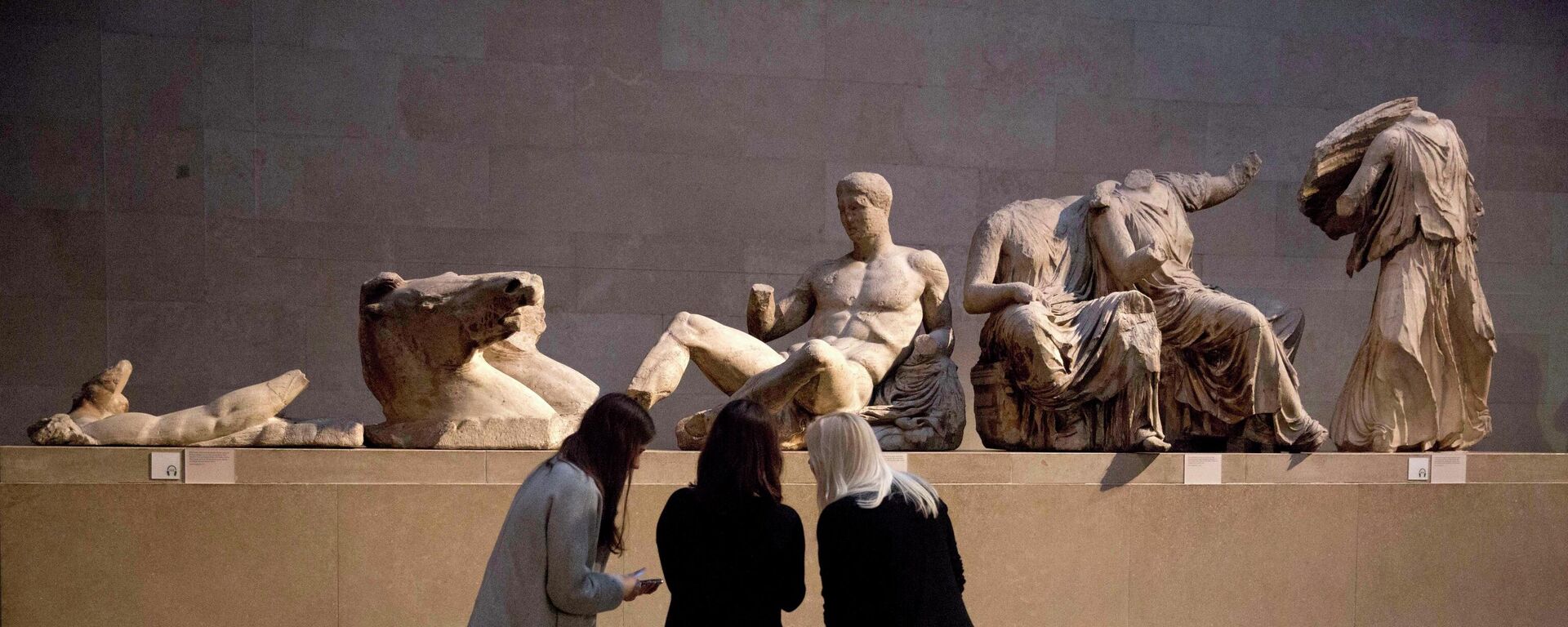
22 November 2021, 11:27 GMT
